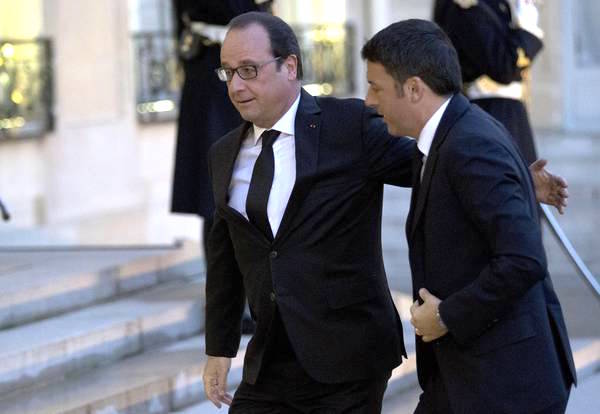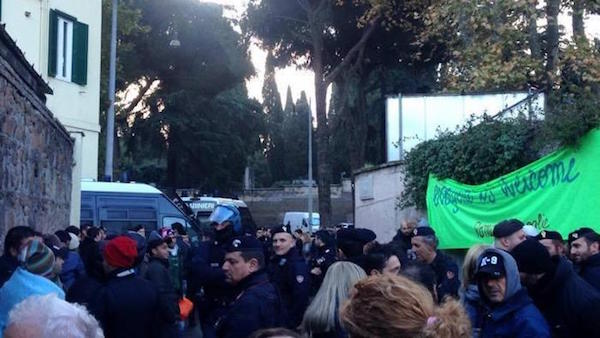Art World
Italy’s Prime Minister Matteo Renzi’s Answer to Terrorism is €1 Billion Funding for Culture
Renzi also proposed a €500 bonus for teenagers to spend on theater and the arts.

Photo: via: Ansamed.
Renzi also proposed a €500 bonus for teenagers to spend on theater and the arts.

Lorena Muñoz-Alonso

Italy’s Prime Minister, Matteo Renzi, is responding to the growing threat of terrorism in the country with an increase in the national budget for culture.
On Tuesday, according to the Financial Times, Renzi allocated €2 billion in new spending. Half of it would be devoted to increasing security measures in the country, which is thought to be a terrorist target. The other €1 billion, however, would be spent on cultural programs.
“What happened in Paris signaled a step-up in the cultural battle that we are living,” Renzi said at the Capitoline Museum in Rome. “They imagine terror, we answer with culture. They destroy statues, we love art. They destroy books, we are the country of libraries.”
Earlier today, Renzi met with the French President François Hollande in Paris to discuss joining forces against ISIS, a sensitive issue since 60 percent of Italians are against joining France in military action in Syria, according to a recent poll conducted by Piepoli.
“The attack that was carried out wasn’t only against France or Europe but against the whole of humanity,” Renzi said of the terrorist attacks that took place in Paris on November 13, which left 129 dead and over 352 injured. “There is the need for an increasingly wide coalition to determine the destruction of ISIS,” he added.
According to Ansamed, during the meeting with Hollande, Renzi stressed again the need of implementing “a cultural response” alongside military intervention. “Our values are much more important than their barbarism,” Renzi said.
Renzi’s plan, which hasn’t been approved by the national parliament yet, features a €500 bonus for every 18-year old so they can attend performances at theaters, concerts, and museum exhibitions. Other areas of spending include allocating a budgets to low-income neighborhoods in the outskirts of Italian cities, where immigrants reside and where confrontations with Italians have taken place.

Italian police raided a migrant center in Rome earlier this week.
Photo: via La Stampa.
According to the FT, Renzi’s proposal might be unpopular with Italian business, as it would be funded by postponing the implementation of a corporate tax cut until 2017, a measure that was considered paramount by many to jumpstart the stagnant national economy.
Aware of the potential backlash, Renzi warned the corporate tax cut could still be launched in 2016, as planned, if Brussels allowed Italy to raise its deficit from 2.2 percent to 2.4 percent of gross domestic product, the FT reports.
But Renzi is no stranger to opposition. At a NATO summit that took place in September 2014, he proposed excluding security spending from the EU budget, which was rejected by world leaders. “I won’t tell you the reactions I got, and now it seems obvious,” he said, according to the FT.

Pope Francis.
Photo: Jeon Han, Korean Culture and Information Service, via Wikimedia Commons.
As part of the increased security measures, Italian police raided the Baobab migrant center in Rome on Tuesday where 23 undocumented immigrants from North Africa, Eritrea, and Ethiophia were detained, according to La Stampa.
On December 8, Italy will celebrate the beginning of the Jubilee of Mercy, a year-long Catholic event announced by Pope Francis which will see millions of pilgrims descend over Rome. According to the Local, Italy will send over 700 troops to the streets of the capital, among growing concerns that the Jubilee might be a terrorist target.